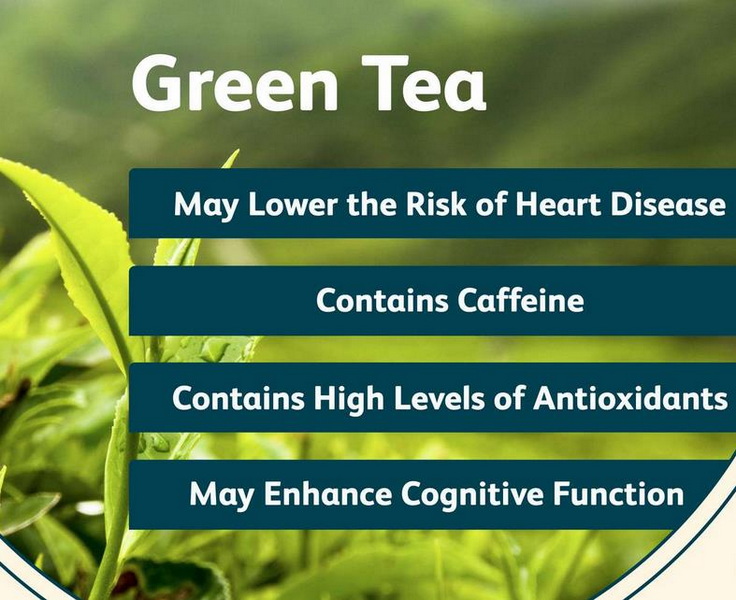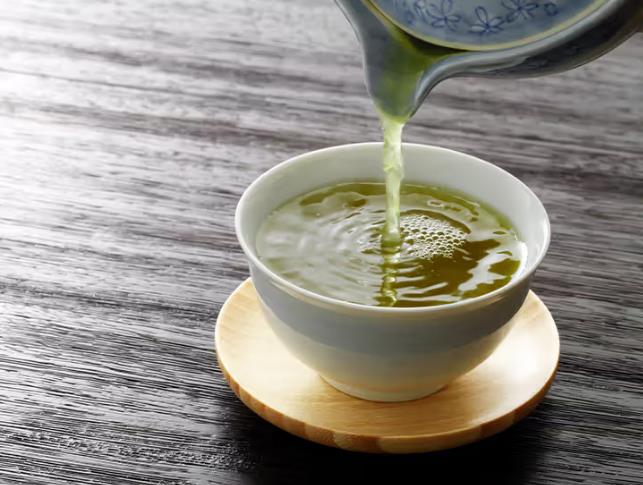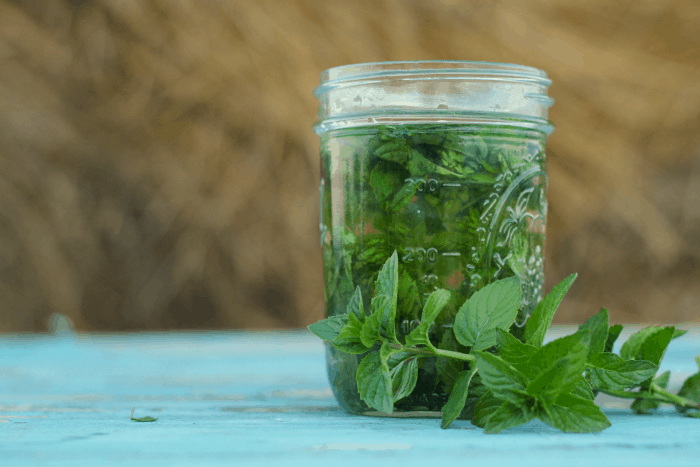Content Menu
● Understanding Tooth Extraction
● The Role of Green Tea in Healing
>> 1. Hemostatic Properties
>> 2. Pain Reduction
>> 3. Antimicrobial Effects
>> 4. Promoting Tissue Regeneration
● Additional Benefits of Green Tea
● How to Incorporate Green Tea into Your Recovery Routine
● Potential Drawbacks
● Scientific Evidence Supporting Green Tea's Benefits
● Making Green Tea Part of Your Daily Routine
● Conclusion
● FAQ
>> 1. Can I drink green tea immediately after tooth extraction?
>> 2. How does green tea help with pain relief after extraction?
>> 3. Is it safe to rinse with green tea after surgery?
>> 4. Can drinking too much green tea cause any issues?
>> 5. Are there any side effects associated with drinking green tea?
● Citations:
Tooth extraction is a common dental procedure that can lead to discomfort and complications if not managed properly. One natural remedy that has gained attention for its potential benefits in post-extraction recovery is green tea. This article explores the various ways in which drinking green tea can aid in healing an extracted tooth site, supported by scientific research and practical advice.

Understanding Tooth Extraction
Tooth extraction involves the removal of a tooth from its socket in the bone. This procedure may be necessary due to various reasons, including:
- Severe tooth decay
- Gum disease
- Overcrowding
- Impacted wisdom teeth
After extraction, the body begins a healing process that includes blood clot formation, tissue regeneration, and inflammation reduction. Managing these aspects is crucial for a smooth recovery.
The Role of Green Tea in Healing
Green tea, derived from the leaves of *Camellia sinensis*, has been consumed for centuries for its health benefits. It contains a wealth of antioxidants, particularly catechins, which are known for their anti-inflammatory and antimicrobial properties. These characteristics make green tea a potential ally in post-extraction recovery.
1. Hemostatic Properties
One of the immediate concerns after tooth extraction is bleeding. Research indicates that green tea can help control bleeding due to its hemostatic properties. A study published in the *Journal of Evidence-Based Complementary & Alternative Medicine* found that patients who used green tea extract-impregnated gauze experienced significantly less bleeding compared to those who used standard gauze. The tannins in green tea promote vasoconstriction and help stabilize blood clots[1][2].
2. Pain Reduction
Post-operative pain is another common issue following tooth extraction. Green tea has been shown to reduce pain levels effectively. In a clinical trial, patients rinsing with green tea reported lower pain scores compared to those using saline solutions. This analgesic effect is attributed to the anti-inflammatory properties of catechins, which help reduce swelling and discomfort[1][3].
3. Antimicrobial Effects
Infection is a risk following any surgical procedure, including tooth extractions. Green tea's antimicrobial properties can help mitigate this risk. Studies have demonstrated that green tea can inhibit the growth of harmful bacteria such as *Streptococcus mutans*, which is responsible for plaque formation and tooth decay[3][4]. By controlling bacterial growth, green tea may help maintain a cleaner environment at the extraction site.
4. Promoting Tissue Regeneration
The antioxidants found in green tea also play a role in promoting tissue healing and regeneration. Research suggests that these compounds can enhance the healing of oral tissues by reducing oxidative stress and inflammation[5]. This effect may lead to quicker recovery times and better overall outcomes following tooth extraction.

Additional Benefits of Green Tea
Beyond aiding in recovery from tooth extraction, green tea offers several other oral health benefits:
- Natural Fluoride Content: Green tea naturally contains fluoride, which helps strengthen tooth enamel and reduce the risk of cavities[6].
- Reduced Plaque Formation: The catechins in green tea inhibit plaque formation by targeting harmful bacteria in the mouth[6][7].
- Gum Health: Regular consumption of green tea may lower the risk of developing gum disease due to its anti-inflammatory properties[9].
- Fresh Breath: Green tea can help combat bad breath by reducing oral bacteria that contribute to halitosis[3][6].
How to Incorporate Green Tea into Your Recovery Routine
If you decide to include green tea in your post-extraction care, consider the following tips:
- Timing: Wait at least 24 hours after your extraction before consuming hot beverages like green tea to avoid dislodging the blood clot.
- Temperature: Drink lukewarm or cold green tea to prevent irritation at the extraction site.
- Sweeteners: Avoid adding sugar to your tea, as sugar can promote bacterial growth and counteract the benefits of green tea.
- Rinsing: After a few days, you might consider using cooled green tea as a mouth rinse to take advantage of its antimicrobial properties.
Potential Drawbacks
While green tea offers numerous benefits, there are some considerations to keep in mind:
- Staining: Regular consumption of green tea can lead to staining of teeth over time due to its tannin content. Maintaining good oral hygiene can mitigate this effect.
- Acidity: Although less acidic than coffee or black tea, some individuals may still experience sensitivity or irritation from hot beverages shortly after surgery.
Scientific Evidence Supporting Green Tea's Benefits
Numerous studies support the claims regarding green tea's effectiveness in promoting oral health and aiding recovery post-extraction:
1. A study found that patients using green tea extract for hemostatic purposes experienced significantly less bleeding compared to control groups using standard methods[1][2].
2. Another clinical trial indicated that rinsing with green tea resulted in lower pain scores and reduced reliance on analgesics following dental surgery[7].
3. Research has shown that regular consumption of green tea correlates with improved periodontal health indicators among participants[9].
4. Additionally, studies have highlighted how topical applications of green tea combined with other agents like hyaluronic acid can enhance soft tissue healing after dental procedures[4].
Making Green Tea Part of Your Daily Routine
Incorporating green tea into your daily routine is simple and enjoyable. Here are some tips to maximize its oral health benefits:
- Choose High-Quality Green Tea: Selecting high-quality, organic green tea ensures that you're getting the maximum health benefits without added sugars or artificial flavors.
- Practice Good Oral Hygiene: While green tea can be beneficial, it should complement your regular oral hygiene routine. Continue brushing your teeth at least twice a day, flossing daily, and visiting your dentist for check-ups and cleanings.
- Enjoy Green Tea Unsweetened: To reap the most benefits, enjoy green tea without sweeteners since sugar can counteract its positive effects.
Conclusion
Drinking green tea can be an effective complementary strategy for enhancing recovery after tooth extraction. Its hemostatic properties, pain-reducing effects, antimicrobial action, and ability to promote tissue regeneration make it a valuable addition to post-operative care. However, it should not replace standard medical advice or treatment from dental professionals.

FAQ
1. Can I drink green tea immediately after tooth extraction?
No, it is advisable to wait at least 24 hours before consuming any hot beverages like green tea to avoid dislodging the blood clot.
2. How does green tea help with pain relief after extraction?
Green tea contains catechins that have anti-inflammatory properties, which can help reduce swelling and discomfort at the extraction site.
3. Is it safe to rinse with green tea after surgery?
Yes, once you have passed the initial healing phase (usually after a few days), rinsing with cooled green tea can help maintain oral hygiene and reduce bacterial load.
4. Can drinking too much green tea cause any issues?
Excessive consumption may lead to tooth staining due to tannins; maintaining good oral hygiene can help prevent this.
5. Are there any side effects associated with drinking green tea?
While generally safe, excessive intake may lead to gastrointestinal discomfort or interfere with certain medications due to its caffeine content.
Citations:
[1] https://dimensionsofdentalhygiene.com/evidence-based-benefits-of-green-tea/
[2] https://pmc.ncbi.nlm.nih.gov/articles/PMC4082946/
[3] https://www.smalltowndental.com/post/the-oral-health-benefits-of-green-tea-sip-your-way-to-a-healthy-smile
[4] https://www.nature.com/articles/s41598-024-57821-5
[5] https://royalimplant.com/blogs/tea-and-coffee-after-extraction/
[6] https://dentistryforyouokc.com/is-green-tea-good-for-your-teeth-benefits-for-oral-health/
[7] https://pmc.ncbi.nlm.nih.gov/articles/PMC3720195/
[8] https://creating-smiles.com/can-i-drink-tea-after-tooth-extraction/
[9] https://www.nature.com/articles/sj.bdj.2010.436
[10] https://pmc.ncbi.nlm.nih.gov/articles/PMC8797077/






























